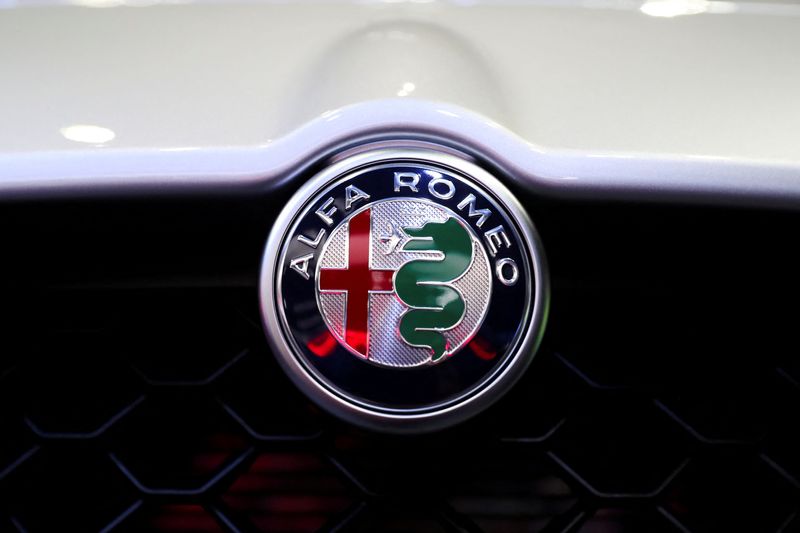MILAN (Reuters) – Stellantis on Tuesday unveiled its new Alfa Romeo Tonale compact sport utility vehicle (SUV) as it aims to expand in the premium market and add electrified and interconnected vehicles to its range.
The world’s fourth largest carmaker plans to spend over 30 billion euros ($34.2 billion) through 2025 to electrify its vehicle lineup and boost its software content to catch up with rivals, including Tesla.
The new Tonale, to be built at Italy’s Pomigliano plant near Naples, is Alfa Romeo’s first electrified model and is initially offered in mild hybrid and plug-in hybrid versions, with an all electric range of up to 80 kilometres, as well as a diesel engine model.
Sales prices are expected to be announced later this year, before orders open in April.
It includes built-in Amazon Alexa voice assistant features. Owners will be able to choose their car as a delivery spot, allowing couriers to unlock the doors safely and leave a parcel inside the vehicle.
Some analysts say the Alfa Romeo brand could be part of Stellantis’ strategy in China, the world’s biggest auto market, where it has been lagging behind most competitors.
The brand’s head Jean-Philippe Imparato has promised a new model release for Alfa Romeo every year to 2026, starting with 2022’s Tonale. This should include a smaller-sized SUV, expected to be built in Poland.
Starting from 2027, all Alfa Romeo new vehicles will be electric, he has said.
Stellantis was formed last year through the merger of Fiat Chrysler and Peugeot maker PSA, and is home to 14 brands, including bestseller Jeep, DS and Lancia in the premium segment and Maserati in the luxury end.
The new Alfa Romeo Tonale is based on a former Fiat Chrysler architecture, while the first Stellantis models built on a new shared platform are expected from next year. ($1 = 0.8767 euros)
(Reporting by Giulio Piovaccari; Editing by Keith Weir)


















